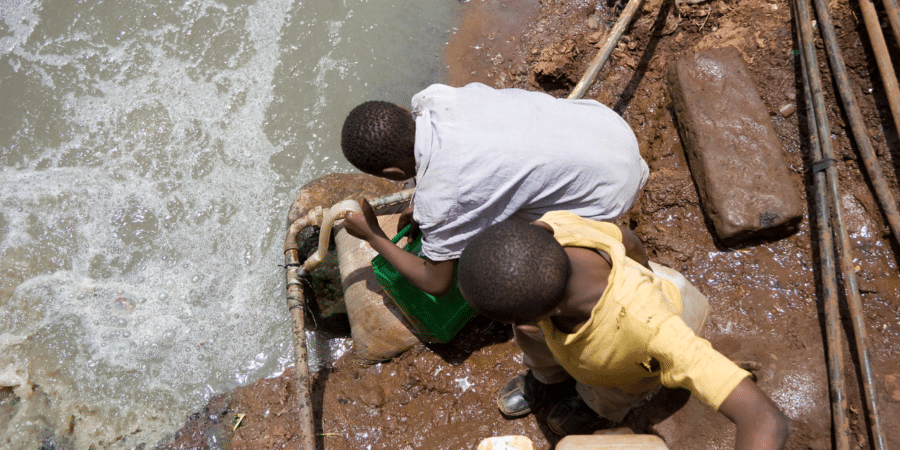Water is a fundamental resource necessary for life, yet millions of people in Sub-Saharan Africa face the harsh realities of water scarcity on a daily basis. While access to clean water is often taken for granted in developed countries, many communities in this region struggle to find enough water for their basic needs, resulting in dire consequences for their health, education, and overall well-being.
Struggles in Heath and Wellbeing
One of the primary challenges contributing to water scarcity in Sub-Saharan Africa is the lack of infrastructure and investment in water management systems. Limited access to safe and reliable water sources forces individuals to rely on contaminated water from rivers, ponds, and shallow wells, leading to widespread waterborne diseases such as cholera, typhoid, and dysentery. The World Health Organization estimates that over 300,000 children under the age of five die every year in this region due to diarrheal diseases caused by unsafe water and poor sanitation.
Struggles in Education
In addition to its impact on health, water scarcity also hinders educational opportunities, particularly for young girls. In many rural areas, children, especially girls, are responsible for fetching water for their families, often traveling long distances and spending hours each day collecting water. This arduous task takes away valuable time that could be spent attending school and gaining an education. As a result, the cycle of poverty and inequality is perpetuated, further limiting opportunities for economic growth and development. Climate change exacerbates the challenges of water scarcity in Sub-Saharan Africa. Increasing temperatures, unpredictable rainfall patterns, and prolonged droughts further strain already limited water resources. Agricultural activities, which are vital for livelihoods in rural communities, suffer greatly, leading to food insecurity and economic instability.
Potential Solutions for Impact
Addressing water scarcity in Sub-Saharan Africa requires a multi-faceted approach that combines infrastructure development, sustainable water management practices, and community engagement. Governments, international organizations, and local communities can work together to invest in water infrastructure projects, such as the construction of boreholes, wells, and water treatment facilities. Furthermore, promoting water conservation and efficient water use practices can help alleviate the pressure on existing water resources. Rainwater harvesting techniques, improved irrigation methods, and the adoption of water-efficient technologies can contribute to a more sustainable use of water in agriculture and domestic settings. Education and awareness programs are also crucial in addressing water scarcity. By educating communities about the importance of water hygiene, sanitation practices, and the efficient use of water, individuals can take an active role in preserving this precious resource.
The harsh realities of water scarcity in Sub-Saharan Africa are a pressing concern that requires immediate attention. By investing in infrastructure, implementing sustainable water management practices, and promoting education and awareness, we can strive towards a future where all individuals in this region have access to clean and safe water. It is only through collective action and commitment that we can bring about lasting change and improve the lives of millions affected by water scarcity.
Clean water programs can help provide access to clean water, which is crucial for promoting better health, reducing poverty, and ensuring sustainable development in communities.
Microfinancing Partners in Africa’s Water Program funds bore holes and easy-to-maintain water filters to support groups to manage clean water as group income projects, help families in poverty afford clean water via small loans or pay-it-forward plans, and empowers members to train others.

